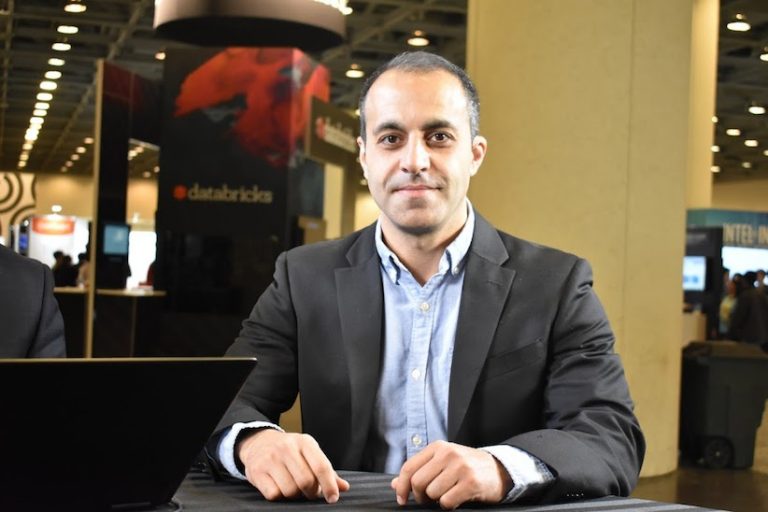 BIG DATA
BIG DATA
 BIG DATA
BIG DATA
 BIG DATA
BIG DATA
Big-data software giant Databricks Inc. is reportedly holding talks with the global investment management giant T. Rowe Price Group Inc. on a fresh round of funding that could bring its value to more than $43 billion.
The report from Bloomberg noted that talks are still at a “preliminary” stage, adding that the parties may not reach an agreement. Databricks declined to comment on the story.
Databricks sells a data engineering platform that enables enterprises to process and transform massive volumes of information, which can then be analyzed, used to train AI models and more. Traditional big-data platforms such as Apache Spark struggle to accomplish these tasks quickly, but Databricks’ software is said to be much faster. It also enhances innovation and application development, offers strong security options and has built-in data visualization tools.
Databricks is already one of the best-funded enterprise technology startups around, closing on a $1 billion Series G funding round in February 2021 that took its valuation to $28 billion. It followed that with an even bigger $1.6 billion Series H round in August 2021, raising its value to $38 billion. All told, Databricks has raised more than $3.5 billion in funding, with T. Rowe Price participating in both of the previous two rounds.
Most analysts were expecting Databricks to launch an initial public offering as its next major funding move, but a slide in the stock markets last year reportedly derailed those plans.
“The markets are closed,” Databricks Chief Executive Ali Ghodsi (pictured) said in an interview with Bloomberg last week. “If they had not been closed, we would have already been public.” Even so, the CEO insisted the company remains “well-capitalized” and that it doesn’t require any additional funding. However, he admitted it may still consider a new funding round for “strategic” purposes.
It’s notable that Databricks is also an eager investor itself, backing numerous startups in recent years, including the data security firm Immuta Inc., behavioral data analytics provider Snowplow Analytics Ltd. and the data transformation company dbt Labs Inc., among others.
Databricks has also made a number of strategic acquisitions at a time when it is pivoting to become a central player in the artificial intelligence industry. This year, it bought an AI data governance startup called Okera Inc. and the AI storage infrastructure provider Rubicon Inc.
The acquisitions are part of a wider push into AI that also saw the company announce its own, open-source generative AI model to compete with ChatGPT, called Dolly. Launched in March, the model was improved with the release of Dolly 2.0 just one month later. It comes with a license that permits commercial use, meaning enterprises can take it and train it on their own datasets to create customized models and generate revenue with them.
At the recent Databricks Data+AI Summit, the company announced yet more innovations in the area of large language models, while underscoring its ability to unify data and bring AI into it. Its new capabilities include Lakehouse IQ, which uses LLMs to infer business meaning from technical data artifacts, and a new platform for generative AI application development based on the technology from its most recent acquisition – MosaicML Inc. It also announced new vector search capabilities that make it easier to find content to feed generative AI models, and a Unity Catalog that harmonizes access to analytic data.
Holger Mueller of Constellation Research Inc. told SiliconANGLE that the role of cloud infrastructure providers in enabling AI workloads has been bad news for companies such as Databricks, as those platforms rely on their own, in-house big data technologies. “To compete with cloud vendors, Databricks needs to level up its AI game, and doing so is very expensive, hence the need for more funding,” the analyst said. “On the other hand, Databricks can be an appealing because it possesses a multicloud strategy path that enterprises desperately want to avoid AI cloud lock-in.”
According to longtime industry analyst and theCUBE co-host Dave Vellante, Databricks has a strong advantage over other data platforms when it comes to unifying data, allowing developers to build analytical AI applications across heterogeneous data sources.
At the Data+AI Summit, Databricks co-founder and Chief Technologist Matei Zaharia sat down with theCUBE, SiliconANGLE Media’s mobile livestreaming studio, to discuss how the new announcements will accelerate the company’s role in the future of generative AI:
Reports that Databricks is looking for more funding first appeared earlier this month, when The Information reported that the company was seeking to raise “hundreds of millions of dollars” to support its push into AI.
Support our mission to keep content open and free by engaging with theCUBE community. Join theCUBE’s Alumni Trust Network, where technology leaders connect, share intelligence and create opportunities.
Founded by tech visionaries John Furrier and Dave Vellante, SiliconANGLE Media has built a dynamic ecosystem of industry-leading digital media brands that reach 15+ million elite tech professionals. Our new proprietary theCUBE AI Video Cloud is breaking ground in audience interaction, leveraging theCUBEai.com neural network to help technology companies make data-driven decisions and stay at the forefront of industry conversations.